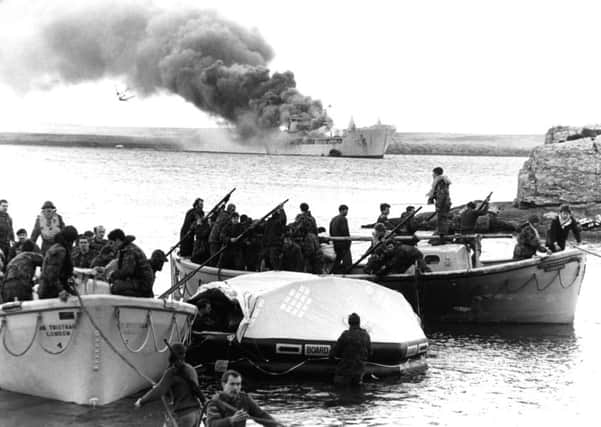Bone Marrow Operation First: The Week That Was October 11 to 18, 1982


The operation, the best known treatment for leukaemia, was preceded by several days of intensive preparations including three bouts of ‘whole body’ radiotherapy at Cookridge Hospital.
Later in the week it was revealed that the recipient was from Dewsbury and the donor was her five-year-old sister. Donation by a family member was vital, in order to tissue match closely with the recipient. The procedure was carried out by a team of five doctors led by Dr Cliff Bailey. The unit was scheduled to carry out up to 12 bone marrow transplants over 12 months.
Advertisement
Hide AdAdvertisement
Hide AdThe heroism of an Army captain responsible for some of the most successful operations of the Falklands War was officially recognised with the award of the Military Cross.
Capt Gavin John Hamilton from Harrogate, 29, joined the Yorkshire roll of honour headed by Sgt Ian McKay of 3rd Batallion, the Parachute Regiment, who won the Victoria Cross. Sgt McKay, also 29 and from Rotherham, died on Mount Longdon in a hail of gunfire as he single-handedly stormed an Argentine machine-gun nest.
Capt Hamilton, 29, also received his award posthumously.
Before being killed in a gun battle against overwhelming odds, he had taken part in a string of daring raids.
Most miners obeyed their union’s call for an overtime ban in support of a 31 per cent pay claim this week. But there were pockets of resistance, including one pit in Yorkshire and six in County Durham.
Advertisement
Hide AdAdvertisement
Hide AdThe action came on the day the Coal Board announced price increases below the rate of inflation - and pleaded with miners to show similar restraint. It had offered pay rises of between 8.2 and 9.1 per cent.
A quarter of newly-qualified teachers were poorly equipped to do the job, according to a new report by government inspectors of schools.They said around five to 10 per cent were unlikely ever to make good teachers because their temperament was unsuitable.
Her Majesty’s Inspectorate blamed colleges for not spotting at interview those who were psychologically and emotionally suitable for a teaching career.
It said these unsuitable candidates would make indecisive, nervous and under-confident teachers who were passive in the classroom.
Advertisement
Hide AdAdvertisement
Hide AdAmid huge jubilation and after more than 437 years at the bottom of the Solent, King Henry VIII’s flagship Mary Rose was brought to the surface once more. The long-anticipated £4m resurrection - which had been postponed twice - had been beset by technical problems affecting the complex salvaging equipment.
But in the end the skeletal remains of mud-caked timbers were re-floated and experts were now readying themselves to begin the long restoration process at a dry-dock in Portsmouth.
A noisy flotilla had gathered to witness the reappearance of the legendary ship. With the vessel already suspended from a lifting frame, the final manoeuvre was to raise her in a specially-constructed air-cushioned cradle onto a transport barge. Launched in 1510, the Mary Rose had been sunk whilst en route to engage the French enemy fleet off Portsmouth Sound in 1545.